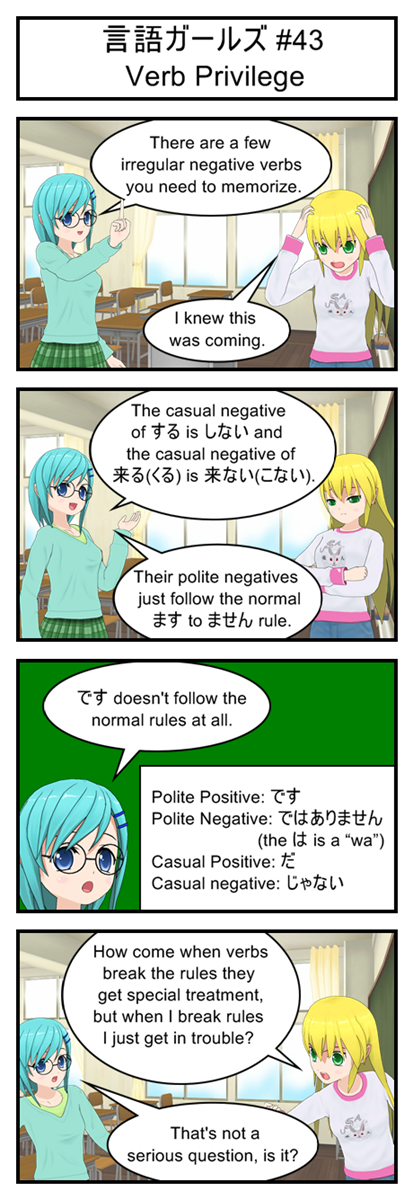
Desu doesn’t follow normal verb conjugation rules because it isn’t a normal verb, but is instead a verb-like copula. “Copula” is just a fancy linguistic term for “a word that links a subject to a predicate in an ‘A is B’ sort of pattern”. Which is interesting trivia but not something you actually need to know to speak Japanese. Just memorize those conjugations and you’ll be fine.
A piece of trivia that you DO need to know is that in casual Japanese “da” often gets left off the end of sentences, especially sentences of the “A is adjective” pattern. So don’t be surprised if you hear casual conservations involving “A wa B” with no desu or da. And since in Japanese you can also drop obvious subjects don’t be surprised if you hear sentences that are only one word long. It’s perfectly good casual Japanese grammar to say something like “oishii” (tasty) instead of “kore wa oishii desu”.
Transcript
言語ガールズ #43
Verb Privilege
Blue: There are a few irregular negative verbs you need to memorize.
Yellow: I knew this was coming.
Blue: The casual negative of する is しない and the casual negative of 来る(くる) is 来ない(こない).
Blue: Their polite negatives just follow the normal ます to ません rule.
Blue: です doesn’t follow the normal rules at all.
Chart: Polite Positive: です
Polite Negative: ではありません (the はis a “wa”)
Casual Positive: だ
Casual negative: じゃない
Yellow: How come when verbs break the rules they get special treatment, but when I break rules I just get in trouble?
Blue: That’s not a serious question, is it?